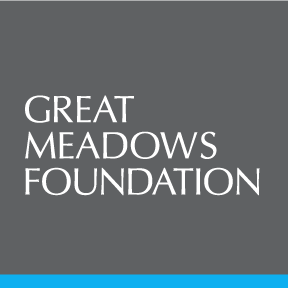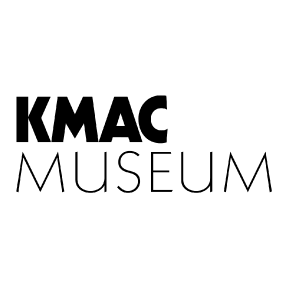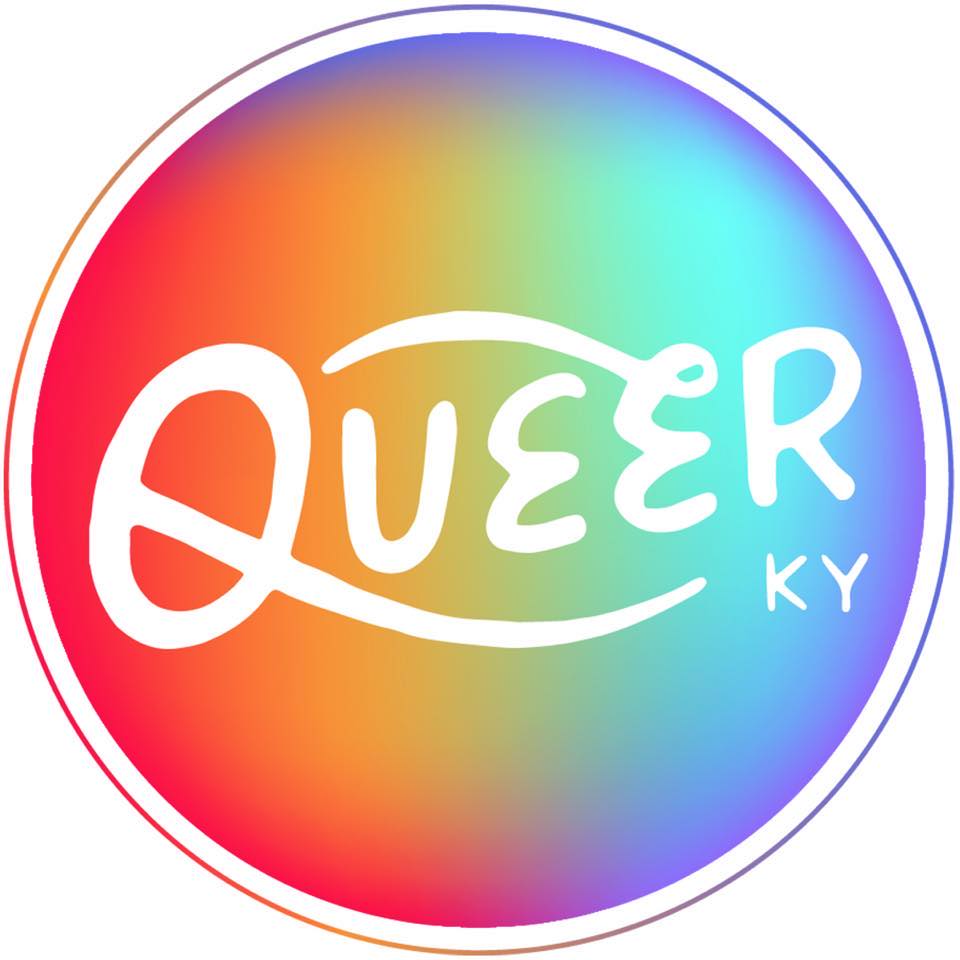
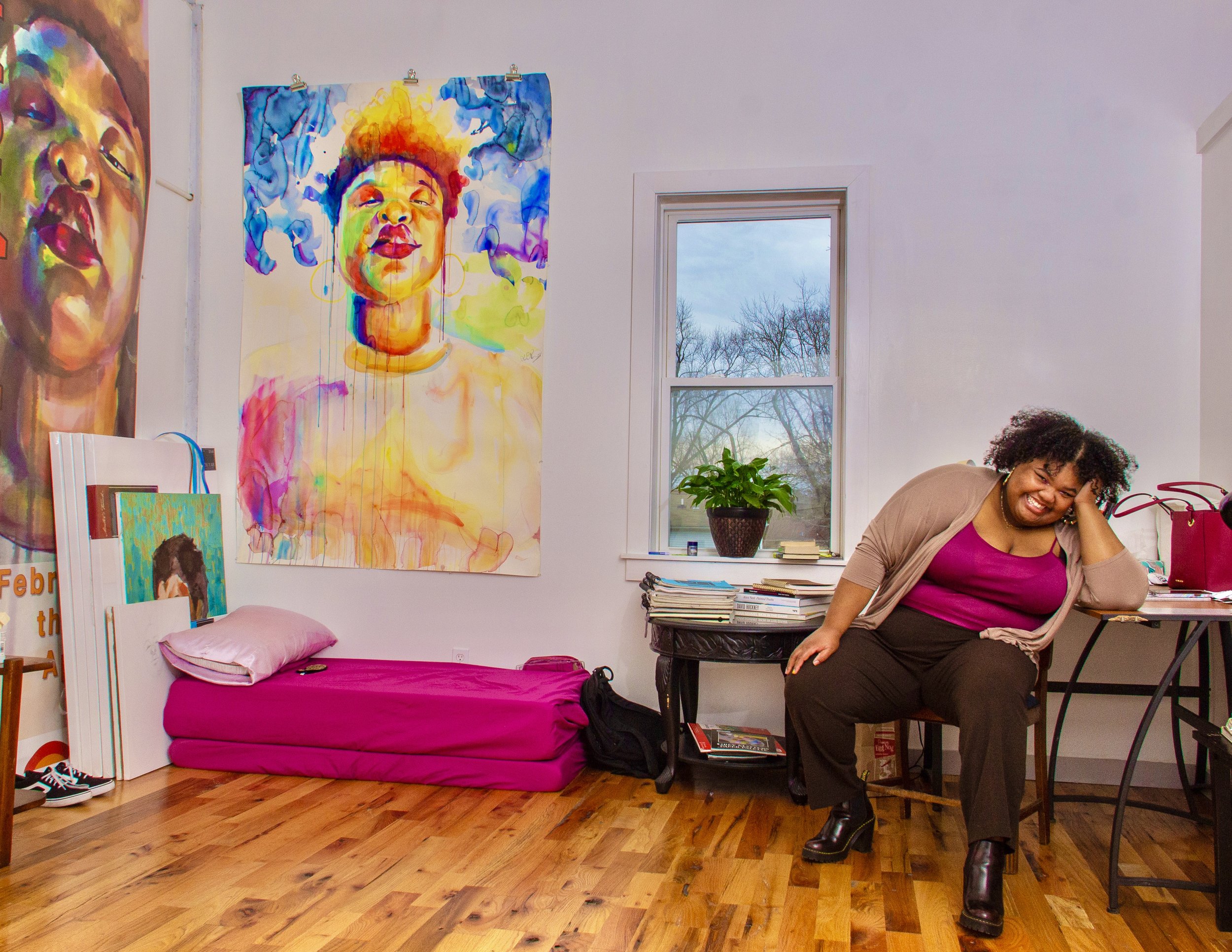
ABOVE: LaNia Roberts. All photos courtesy of the artist.
LaNia Roberts
Q&A
Kenneth Woods
LaNia Roberts, an artist based in Louisville, Kentucky, channels her lived experiences into large-scale figure paintings inspired by cubism and fauvism. Her exploration of liberation through color involves painting vibrant, arbitrary hues on skin, collaging diverse perspectives into singular compositions that visually unravel the complexity of each model's identity. Holding a BFA in painting from Syracuse University, LaNia's global journey includes researching identity politics in Cape Town, South Africa and exploring multidisciplinary art in Florence, Italy. Awarded with grants like the Bill Fischer Award and a Great Meadows Foundation Travel Grant to go see the Venice Biennale. Collected by the 21c Museum and represented by Claire Oliver Gallery in NYC, LaNia extends her impact through an online-based social art practice, inspiring millions worldwide with messages of radical self-compassion, love, and acceptance across Instagram and TikTok, boasting nearly 300,000 followers.
Kenneth Woods: Describe yourself as an artist and the style that you use.
LaNia Roberts: I describe myself as a multimedia artist, but most of my recent focus has been on acrylic painting. As I’ve traveled, I’ve realized that every person has their own culture and experiences, but not a lot of people know about my culture in Louisville or that there were even Black people in Louisville. With my art, I want to bring awareness to that. I’m currently working on a series centered around my family’s kitchen. This is quite different from my previous work, which was centered around self portraiture. With those portraits, I explored how I am seen and my identity as a plus sized Black woman living in a marginalized body. With my new work, I am seeking to expand the conversation around my family and their bodies.
KW: How has living in Louisville influenced your art?
LR: The opportunities for artists in this city impacted me growing up. Attending visual arts classes in high school changed my life. The Louisville arts community is small, making it easy to become a big fish in a small pond. I think that’s led to a particular experience that's been helpful to my career. If you go out to an event and begin networking with folks, you’ll realize no one is really from Louisville anymore. If people are interested enough to move to my city, why am I not viewing Louisville through that lens? I’m very grateful for that shift in perspective. My experiences in Louisville have been both painful and beautiful and have filled me with cultural values and character traits that follow me wherever I go.
KW: You’ve done quite a bit of traveling. What did you learn from traveling outside of the United States and how has that influenced your art?
LR: I’ve learned a lot! I believe I have traveled to twelve countries on three continents. I’ve just returned from my sixth trip to Italy where I’ve been working with my art mentors who I started working with when I first studied abroad six years ago. I also lived in South Africa for three months, which was an incredible experience and I think it has impacted my art the most. Going to Italy for the first time impacted me because I wasn’t just Black, I was American. I was never aware of my nationality, but going over there you see a stark difference, unfortunately. I never thought I had privilege before, but going over there showed me that as an American I do have a certain amount of privilege. That experience made me think differently about how we speak about privilege here in America.
When I went to South Africa, I got excited like, “Oh, I’m going to Africa, I’m going home!” It was so interesting, because I was at home until I opened my mouth. When my American accent came out, it was clear I didn’t fit in. I was told I talked like a white person, which made me feel more American than African. This caused me to become more curious about my culture and change my subject matter to my family and to share my experience, The Louisville experience, and the Black Louisville experience with the world.
KW: You traveled on a Great Meadows Foundation Grant. How did that opportunity come about and why did you choose Italy?
LR: That opportunity came up because I went to support fellow artist, Sandra Charles, at her solo exhibition at KMAC. I ran into the curator, Joey Yates, and he told me he had just come back from vacation in Italy. I told him I couldn’t wait to one day be able to afford to go there for the Venice Biennale. Joey told me, “You should go this year, you should apply for a Great Meadows Grant.” Once he said that, lightbulbs went off in my head and I rushed home to fill out the application. I received a $4500 grant to spend two weeks in Italy. I didn’t just go for the Venice Biennale, I also checked in on my mentors and I requested a trip to Rome. I saw some of the most amazing art, and it made me feel more connected to the art world than ever before. It boosted my confidence as an artist to be able to go to the center of the art world and say I was there. It was also amazing because the year I went, Simone Leigh was there representing the United States, which was the first time a Black woman represented the U.S. at the Venice Biennale since its creation. That in itself inspired me and lit a fire under me.
KW: You are also currently participating in an exhibit at the Muhammad Ali Center, We Don't Wither. You submitted three self portraits enveloped in water. Why those pieces and how do they speak to the theme of not withering?
LR: I submitted three pieces, one of which has been collected, which is a self portrait of me looking back. The other two pieces are just of my body. During this time, I was painting water and researching feminine energy, as water is such a feminine element. I was looking into the art of surrender because in 2021 and early 2022 I realized that I did not have the life that I wanted. All I could do was surrender and the water is a representation of that. The largest piece in the exhibition is called I Don’t Simply Float, I Rise. This piece and time in my life were based on the poem “Still I Rise” by Dr. Maya Angelou. With this piece, I’m trying to portray a certain sense of resistance and resilience. Growing up, I was taught that being plus sized wasn’t desirable, so I set out to create something undeniably beautiful. I’m painting water, although it can be a dangerous thing, and I’m becoming one with it. I’m conquering this feminine energy in my own way.
KW: As you grow in the curiosity and acceptance of your body, do you think these self portraits are a series you'll remain in for a while longer, or do you have other plans artistically?
LR: I can’t say the self portraiture is taking a pause, but I can say this current series is very important to me. There are specific angles I can only get when I’m behind the camera, so my self portraits are on hold as I figure it out. Now, I’m taking the focus off of myself and putting it on what I see in the world. I’m taking self portraiture by painting the bodies of those I see myself reflected in, I’m giving them voice through my work. As an artist, I can make those who often go unseen feel more visible, and I can do it in a way that pays homage to them. I believe my sense of self portraiture has not been erased, rather, it has evolved. I’ve learned that I can’t run away from myself or my family. I know that I’ll show back up in these paintings, I just don’t know how or when.
KW: What's one thing you want folks to walk away with after they've interacted with your art?
LR: Judgment is something I wish to tackle in my work. I want people to have various perspectives and I want the bodies of either myself or family to be seen as beautiful, deserving, and human. I’m also seeking to address shame with this work, especially for Black folks. All of my works are of people looking directly at the viewer with no shame. I want people to walk around free of this burden, no matter who they are and where they come from.
KW: Thank you so much for your time! What's something you would like to say to the younger version of you who is just getting started on their artistic journey?
LR: I would tell the younger version of myself that it’s possible. The things I’m doing now were once visions I saw for myself but didn’t necessarily see reflected in my community. From having gallery representation to being a fulltime artist, these are things that were at one point merely dreams. I would tell myself to dream big and more importantly, get so good they can’t ignore you. You deserve to be seen out here. You have the talent and the skillset, just continue to hone your craft so you become undeniable. I would tell myself not to be so mean, because we can develop a mean inner voice and self-talk, depending on how we’re raised and where we grew up. I believe the nicer and gentler we are to ourselves, the quicker we’ll reach and achieve our goals. The last thing I’ll say is don’t be afraid to ask questions. Get you some mentors, even if you have to put yourself out there and risk annoying older people with your messages or your questions. Mentorship is important because the most important thing for your career isn’t knowing what to do, it’s knowing what not to do.
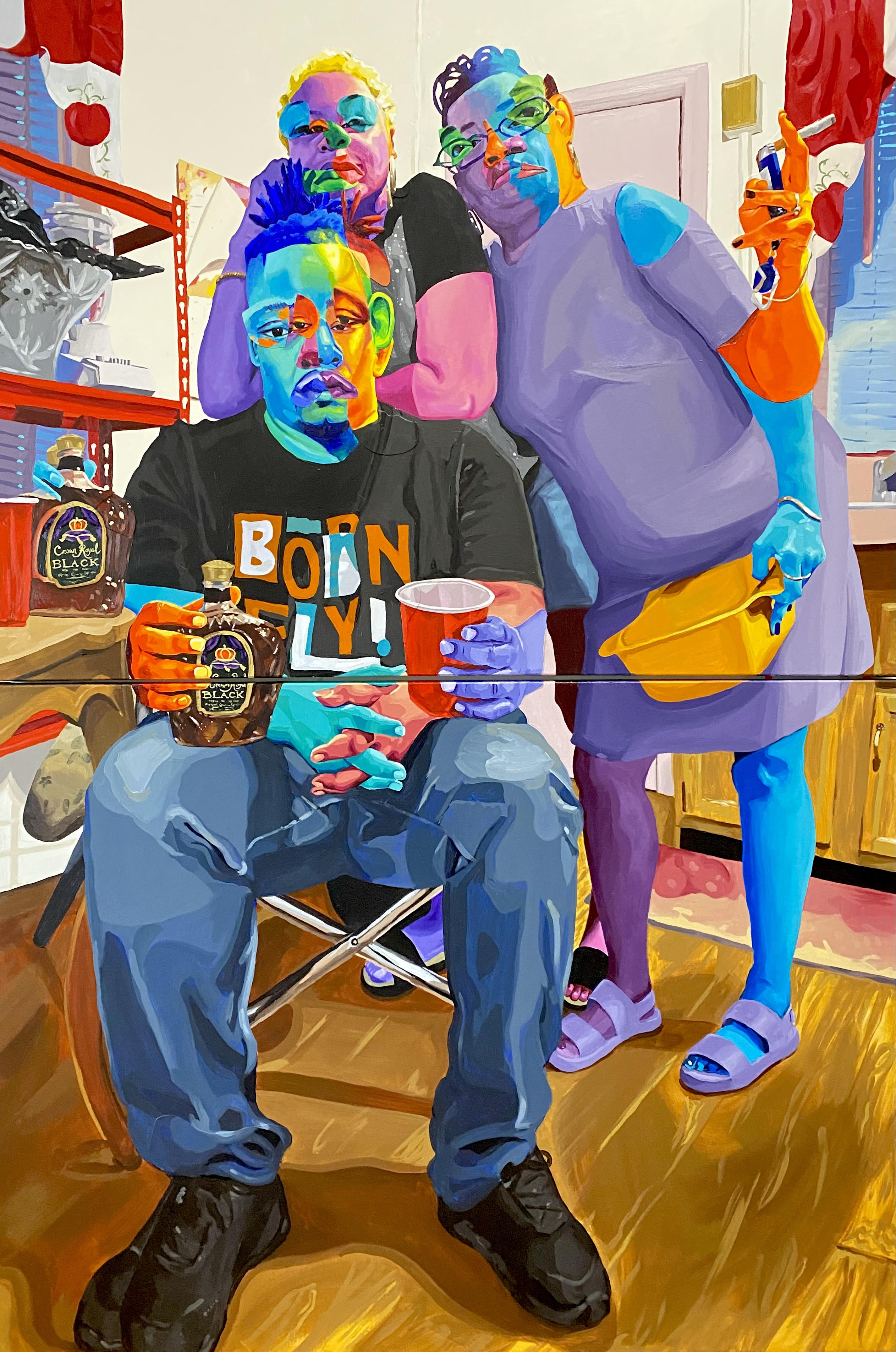
LaNia Roberts, This is Us (2022). Acrylic and paper collaged on canvas.
 LaNia Roberts, We Hold Each Other Up (2023). Acrylic and paper collaged on canvas.
LaNia Roberts, We Hold Each Other Up (2023). Acrylic and paper collaged on canvas.-
12.17.23
Kenneth L. Woods (he/him), AKA “KennyFresh,” is a spoken word artist, writer, poet and author. He’s been servicing both Indiana and Louisville, KY for the past decade. Kenneth partners with non-profit organizations, businesses, and individuals to use the gift of poetry and spoken word to help others creatively tell their stories. In his spare time, Kenneth enjoys reading, hanging out with his pet tarantula, listening to music, and photography.
12.17.23
Kenneth L. Woods (he/him), AKA “KennyFresh,” is a spoken word artist, writer, poet and author. He’s been servicing both Indiana and Louisville, KY for the past decade. Kenneth partners with non-profit organizations, businesses, and individuals to use the gift of poetry and spoken word to help others creatively tell their stories. In his spare time, Kenneth enjoys reading, hanging out with his pet tarantula, listening to music, and photography.



